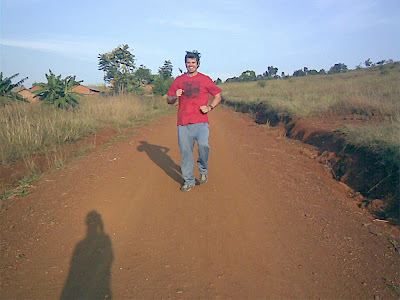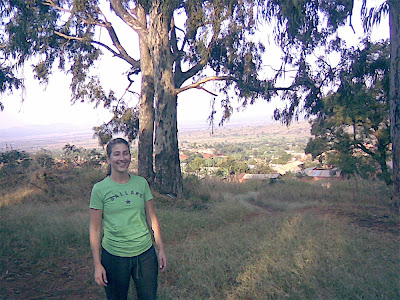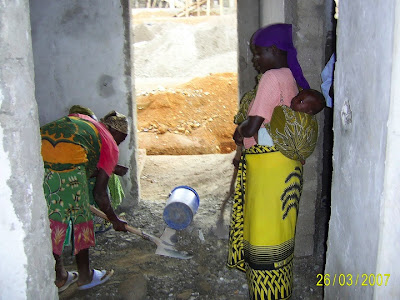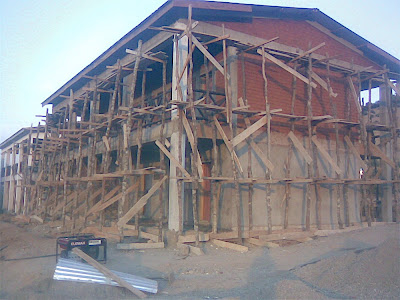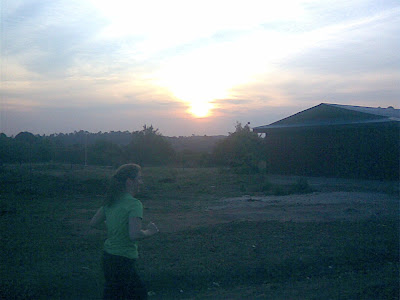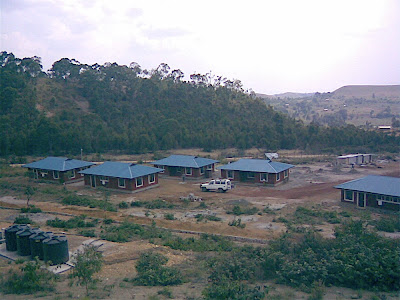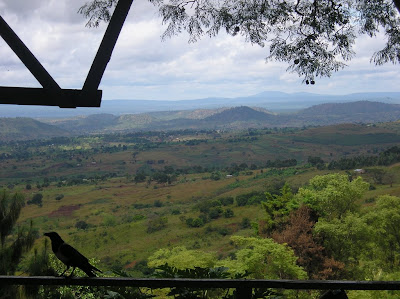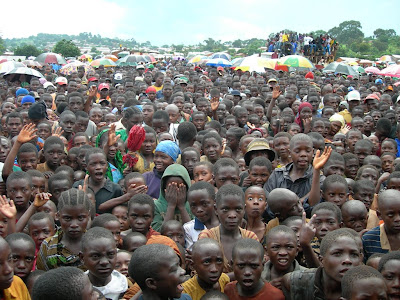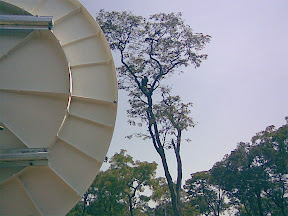
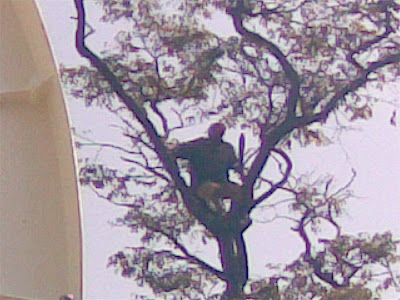
In other news, the accommodation center that the American people paid for is ready for us to move in. So for a mere $1 million and only 3 months overdue, we get some pretty plush digs for 4 months or so. CENSORED So nice to contribute to the community! It's half a kilometer from Kibondo town, so not quite the short walk that the guest house is, but still close, I hope.
I've been trying to volunteer for some of the agencies out here, but some of them are pretty strict about it. The amount of politics and bureaucracy is mind numbing at times. CENSORED. I'm sure that's just a vestigial wave of paranoia that comes from living in a once communist country, but I'm not really that sure. CENSORED. See, the theory is that if refugees become aware of the opening of a transit center for the ones that will be resettled in the U.S., they will no longer want to go back home and voluntary repatriation will drop off. As with many things, there are so many sides to this issue that it comes to resemble a sphere. More like a jawbreaker right before you crack it. The other thing that the taxes I got a six month extension on taking care of paid for is about 400 brick homes for the chosen refugees to live in. The ones being resettled score these beauties partly for security, because they become kind of singled out from the rest of the refugee populace. The first time I saw these, they looked very picturesque and at the same time like the opening credits to Weeds. I got a very emotional feeling coming out of there, but I'm still not sure what it was. Lets just say there was no bile involved.
The dust is rising out here. It hasn't rained for a few days and people are starting to get coughs. The sun sets higher and higher each day because of the amount of dust in the air. When we are driving on the road, it takes less than 2 seconds for a bicycle to vanish in the dust rising from our passing. The dust is red, but it doesn't taste like iron. Someone probably said it is red from the blood spilled in African wars but then it would probably taste more salty. No, it just tastes like chalk, except at night, when it tastes like wet chalk.
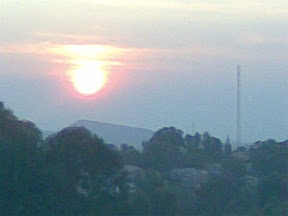


I've been trying random eating options in an effort to have some variety. I like the samosas, but they are often cold and that's when the grease gets a little mucky. Samosas are triangular deep fried things with ground meat and veggies or just veggies in them. I've also tried something one place calls a pizza, but its really just a meat pie with pizza dough like skin and a boiled egg inside. They have veggie ones of those, too. So far, nothing has made me sick. A common roadside treat is some kind of meat on skewers and chips mayai. The skewers are typically, upon close inspection, bicycle spokes and the meat can have a kind of woodsy rancid taste after 4 pm. Chips mayai is just french fries embedded in scrambled eggs. Sometimes you get chapati on the road, which is kind of like a tortilla only more greasy and a little more bready. Chapati is the most likely to give you the runs, according to my informal poll. Suffice it to say that they reuse the grease. What they used it for in the first place I will gladly leave a mystery.
If the old rule of thumb about the cleanliness of restaurant kitchens being indicated by the cleanliness of the bathrooms applies, you do not want to eat in Kibondo. The typical bathroom, with its various nesting insects, patchy ruddy color from the dust and mud of which the walls seem to be composed, parts of small animals and birds in various stages of decomposition, floor (if there is a floor) festooned with bits of newspaper (not for reading) and tissue, and enormous maw that somehow still isn't big enough to catch all the human waste spewed at it, makes a very good appetite suppressant. And at most of these places you need an appetite suppressant. Beer, or "Bia" in Swahili (see, I am learning a language), also fills the helps stave off the hunger quite nicely. And it works in conjunction with the bathroom imagery, so the 2-5 hour wait for food seems like a mere 1 to 4 hours. You can order ahead, but then they act surprised when you get there an hour later, and won't start cooking until you've been there for 30 minutes or so. Actually, I'm basing this on only a couple of places. The roadside stands are more responsive. But we did wait five hours for Samosas once, until one guy went and stood in the kitchen until the food got cooked. We dined that night at around 11:30. You also commonly run into the situation where there is no more food. Most of the time you just have to keep asking and something will happen, but sometimes there is just no more food. So Ann and I have started cooking at home. We need to get a gas stove, because the charcoal habatchis that they use around here take a while to fire up.
Right now she is sick in bed. We live with the medical coordinator, Dr. Leul, who we also hang out with all the time and within hours of Ann feeling ill she had both kinds of malaria tests. She got the results back within a half hour of taking them (negative). For comparison, when I started showing symptoms in Seattle, it took 3 hours of waiting in the emergency room to get the test, and another 24 to get the results. There are some unexpected things going on over here, which I guess makes sense in the land where humans became dominant amongst 1 ton carnivores and the virulence that took them down.

